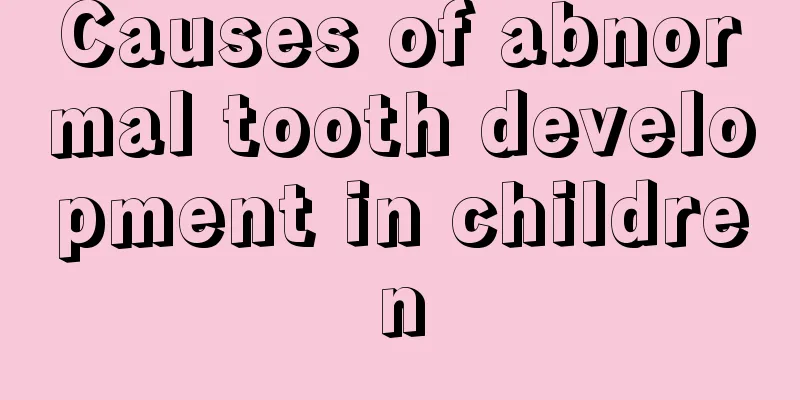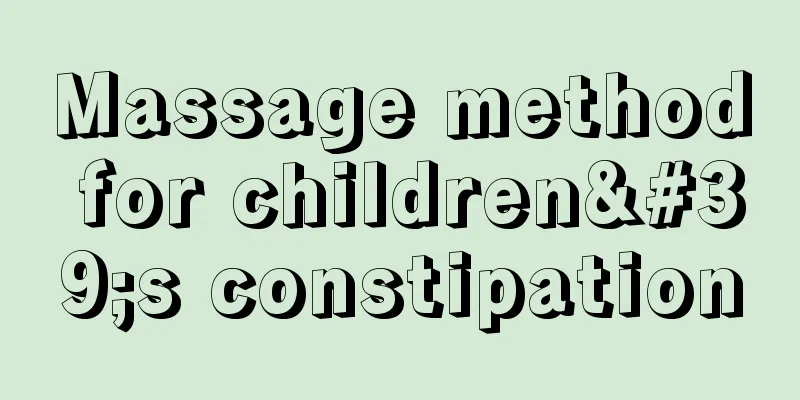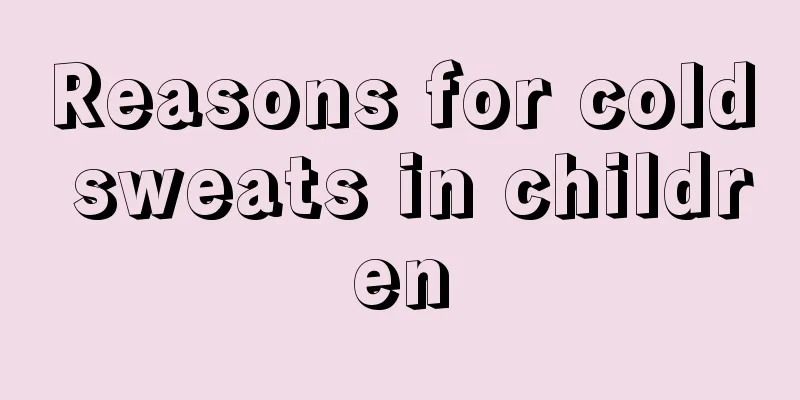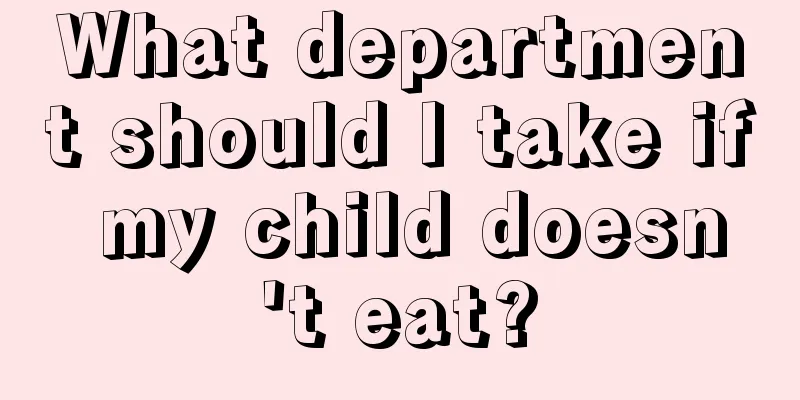How to deal with recurring fever in infants and young children
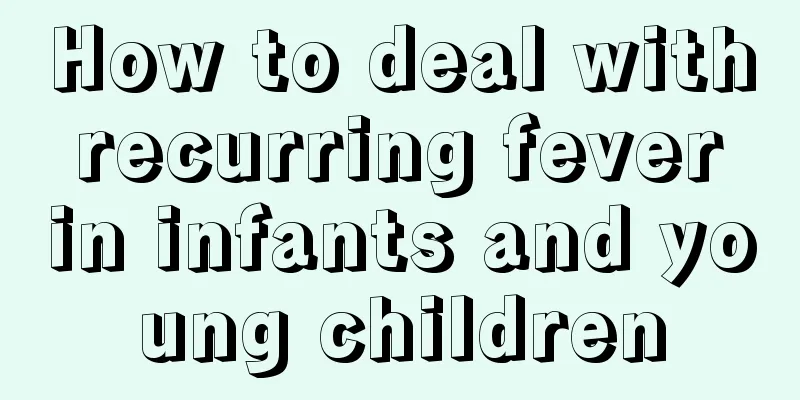
|
Newborn babies and young children have poor resistance to infection. If they are exposed to polluted air or are surrounded by dirty clothes for a long time, they are very likely to develop fever symptoms, which may even recur. Some infants and young children with weaker constitutions may even experience symptoms such as suffocation when they have a fever, which can endanger their lives. Below I will introduce how to deal with recurring fevers in infants and young children. I hope that parents can deal with it in a timely manner. Taking antipyretics Antipyretics are drugs that can regulate human functions to dilate blood vessels on the surface of the body, thereby increasing heat dissipation through sweating and other processes, while inhibiting chills and reducing the body's heat production. It can effectively control fever and lower body temperature, but it cannot fundamentally eliminate the cause of fever. Fever is one of the common symptoms of many diseases. It is not enough to use antipyretics to treat fever regardless of the cause or condition. There are principles for home medication 1. Short-term low-grade fever without medication Low-grade fever usually refers to a fever below 38.5℃. This increase in body temperature is almost invisible in children, but often causes obvious discomfort in adults. 2. Early diagnosis and treatment of children's fever Children are different from adults. Their reaction to a low-grade fever is often not obvious, but their body temperature rises quickly. They may be fine in the afternoon but suddenly develop a high fever at night. Therefore, sufficient attention must be paid to children's fever. Even if it is a low fever, medical treatment should be sought promptly, and some temporary antipyretic drugs should be prepared to avoid being at a loss when a high fever suddenly develops at night. Because young children's physical development is not yet complete, you need to be very careful when using medication for fever. When the fever is low or moderate, it is best not to give the child antipyretics, especially for newborns whose body temperature regulation is unstable, so the use of antipyretics should be more cautious. In addition, antipyretic drugs have a time limit. After the effect of the drugs wears off, the child will have relapses. These are normal phenomena. The correct approach is that when a child has a fever, parents can take off their children's clothes to dissipate heat, loosen the bag to cool them down, and use physical cooling methods such as wiping the body with warm water and applying ice packs. It is recommended to give children antipyretics only when the axillary temperature exceeds 38.5℃. Although it is generally not recommended to use antipyretics for children's colds, if the disease keeps recurring, it is necessary to use antipyretics in order to achieve the goal of cure as soon as possible. If parents are worried about side effects, they can also try to use less antipyretics. At the same time, combining diet therapy and physical fever reduction can also have a good treatment effect. I have introduced above how to deal with recurrent fevers in infants and young children, but to fundamentally prevent recurrent fevers in infants and young children, infants and young children should be provided with a clean and tidy external environment. If there is a sudden fever or recurring fever due to distance, you can combine the methods I mentioned earlier to deal with recurring fever in infants and young children, and rush to the hospital for scientific treatment in time. I hope my method will help you. |
<<: Treatment of swollen lips in children
>>: What to eat when a child has a fever
Recommend
What are the causes of colds and fevers in nine-month-old babies?
There are many babies under one year old who are ...
Is high crp in newborns serious?
Generally speaking, if the crp of a newborn is re...
What should I do if my child has a tongue ulcer?
Tongue tip ulcers are a common disease in childre...
Why are my children's hands peeling?
Whenever parents encounter physical symptoms in t...
How to improve memory in children
Memory is becoming more and more important in tod...
Children's soy milk nutrition recipe
Many parents like to see their children eat food ...
Simple and convenient dishes that children love to eat
Being naughty and lively is the nature of childre...
What should I do if my baby is frightened?
Because the baby is still relatively young, his p...
What are the causes of benign epilepsy in children?
Epilepsy is a very scary disease that has a great...
What to do if the inside of baby's lips turn purple
If your baby's lips turn purple, you must tak...
Baby food broccoli shrimp porridge
When the baby grows to about 6 months old, parent...
How to perform cardiac compression in children
Cardiac compression is something that every one o...
Can children eat enough Polygonum multiflorum?
Everyone knows that Polygonum multiflorum is a ve...
What should we pay attention to when we have acute rash in children?
Roseola infantum occurs frequently, but not all p...
Treatment of red spots on baby's body
Do female friends who are becoming mothers for th...




